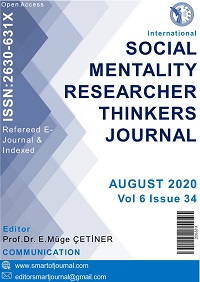Author :
Abstract
Soğuk Savaş sonrası dönemde ortaya çıkan birçok devlet arasında ön plana çıkan devlet şüphesiz Rusya Federasyonu olmuştur. Rusya Federasyonu kurulduğu dönemde süper güç değildi. Ancak sahip olduğu değerler dikkate alındığında bölgesel güçten de çok ötede bir konumdaydı. Rusya Federasyonu kuruluşunun hemen ardından Avrupa Birliği ile ilişkisini resmi olarak başlatmıştır. Avrupa Birliği de bu ilgiye kayıtsız kalmamıştır. Ancak bu ilişkinin başlatılması ve sürdürülmesi hususunda her iki tarafın da farklı beklentileri olmuştur. Rusya Federasyonu her ne kadar Sovyet bloğundan kopan ülkelerin bağımsızlıklarını tanımışsa da bu ülkelerin Batı yanlısı politika izlemelerine de sıcak yaklaşmamıştır. Bu nedenle Batıyla münasebet kurmak isteyen yakın çevredeki ülkeler için bu durum ikileme sebep olmuştur. Putin’in liderliğiyle birlikte Rusya Federasyonu’nun yakın çevresinde de önemli gelişmeler yaşanmıştır. Özellikle AB’nin 2004 yılındaki genişlemesinden sonra Gürcistan ve Ukrayna’daki gelişmelere eylem düzeyinde tepki göstermiştir. Bu makalede Rusya Federasyonu’nun Gürcistan ve Ukrayna’da meydana gelen batı menşeili teşebbüslere tepkisi ve bunun Rusya Federasyonu ile Avrupa Birliği arasındaki ilişkiye etkisi tetkik edilmiştir.
Keywords
Abstract
The state that came to the forefront among many states that emerged in the post-Cold War era was undoubtedly the Russian Federation. The Russian Federation was not a superpower when it was founded. However, considering its values, it was well beyond the regional power. The Russian Federation officially started its relationship with the European Union immediately after its establishment. The European Union is not indifferent to this interest. But both sides had different expectations about starting and maintaining this relationship. Although the Russian Federation recognized the independence of the countries that broke off from the Soviet bloc, it did not favor the pro-Western policy of these countries. For this reason, this situation has caused dilemma for the countries in the near abroad who want to establish relations with the west. Along with the leadership of Putin, important developments have taken place in the near abroad of the Russian Federation. Especially after the enlargement of the EU in 2004, it reacted to the developments in Georgia and Ukraine at the action level. In this article, the reaction of the Russian Federation to the western-based enterprises in Georgia and Ukraine and its effect on the relationship between the Russian Federation and the European Union were investigated.





